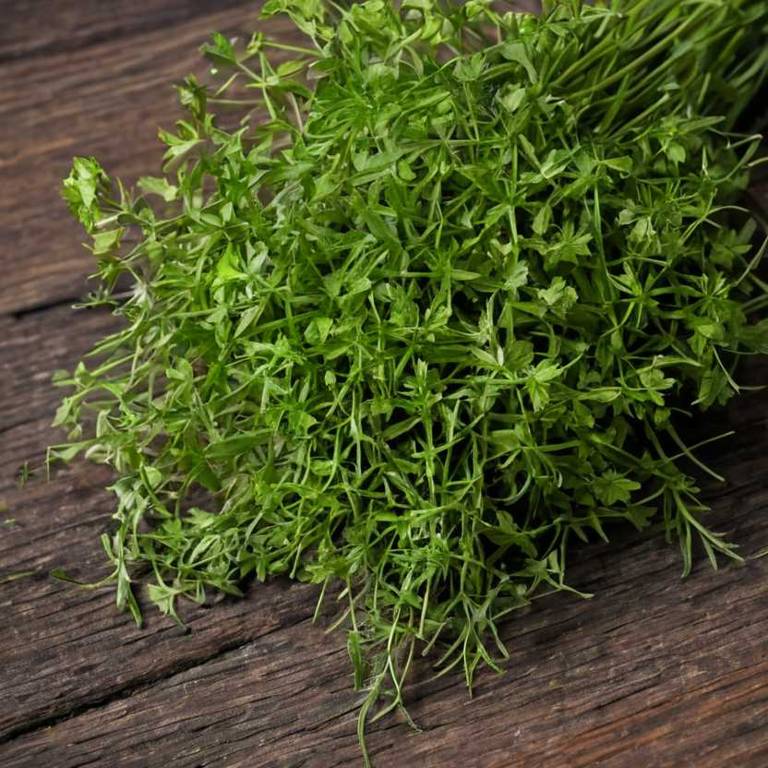Chinese Bupleurum (Bupleurum chinense)
Chinese Bupleurum (Bupleurum chinense) is a member of the Apiaceae family, native to China, Korea, and Japan. Traditionally, its roots, rhizomes, and stems have been used for decoctions, infusions, and powders.
This herb is particularly valued for its anti-inflammatory, tonic, and bitter actions, and has a long history of use in traditional chinese medicine, japanese kampo medicine, and korean traditional medicine.

Quick Facts / Key Information
| Common Name | Chinese Bupleurum |
|---|---|
| Scientific Name | Bupleurum chinense |
| Plant Family | Apiaceae |
| Genus | Bupleurum |
| Species | chinense |
| Native Range | China, Korea, Japan |
| Plant Parts Used | Roots, Rhizomes, Stems |
| Primary Medicinal Actions | Anti-Inflammatory, Tonic, Bitter |
| Primary Traditional Systems | Traditional Chinese Medicine, Japanese Kampo Medicine, Korean Traditional Medicine |
| Historical Preparation Methods | Decoction, Infusion, Powder |
Botanical Identity
- Scientific Name
- Bupleurum chinense
- Common Name
- Chinese Bupleurum
- Synonyms / Alternative Names
- Chinese Thoroughwax, Chinense Bupleurum, Chinese Thoroughwort
- Plant Family
- Apiaceae
- Genus
- Bupleurum
Botanical Description
- Growth Habit
- Perennial herbaceous plant.
- Height
- It typically grows to a height of 30 to 80 centimeters.
- Leaves
- Ovate leaves with upper surface glabrous and dull green, lower surface glabrous and lighter green, featuring distinct stomatal bands along the midrib.
- Flowers
- Inflorescences are racemes of small, yellow flowers with five petals, arranged in a spiral, displaying actinomorphic symmetry and lacking distinct markings.
- Stems
- Elongated, cylindrical stems with opposite branching, hairy surfaces, and prominent nodes.
Traditional Uses / Historical Use
Traditional Systems
- Traditional Chinese Medicine
- Japanese Kampo Medicine
- Korean Traditional Medicine
Historical Preparation Methods
- Decoction
- Infusion
- Powder
- Tincture
Medicinal Actions
- Anti-inflammatory
- Commonly referenced as a mild anti-inflammatory, for general calming applications.
- Tonic
- Traditionally described as a warming tonic, for foundational support.
- Bitter
- As described in traditional systems, a calming bitter, in taste-driven classifications.
- Antispasmodic
- In herbal literature, noted as a cooling antispasmodic, in smooth muscle contexts.
Active Compounds
- Flavonoid
- Plant-based polyphenolic compounds frequently distributed throughout aerial plant parts.
- Saponin
- Plant-derived compounds characterized by their soap-like properties.
- Glycoside
- A broad class of compounds composed of a sugar bound to a non-sugar component.
- Terpenoid
- Naturally occurring metabolites widely distributed in leaves, flowers, and roots.
Modern Research Overview
Modern scientific investigation of this plant has focused on identifying its chemical constituents and examining their properties in controlled research settings. Comprehensive study summaries will be incorporated into this section as additional sources are reviewed.
Safety & Contraindications
- General Precautions
- Caution is advised in certain contexts based on traditional use and available information.
- Contraindications
- There is insufficient evidence to determine specific contraindications related to this herb.
- Allergies
- Reports of allergic reactions to this herb are not well documented in available sources.
- Drug Interactions
- There is insufficient evidence to determine whether this herb interacts with pharmaceutical drugs.
- Toxicity
- Available information regarding the toxicity of this herb is limited.
- Pregnancy & Breastfeeding
- Safety during pregnancy and breastfeeding has not been well documented.
Preparation & Usage Methods
- Infusion
- Dried or fresh plant parts are infused in hot water and consumed as a beverage.
- Decoction
- Plant parts are gently boiled in water to release soluble constituents.
- Poultice
- Plant parts are crushed or moistened and placed directly on the body.
- Powder
- This method converts dried plant material into a uniform powder.
- Tincture
- Plant material is macerated in alcohol to create a concentrated liquid extract.
Growing, Harvesting & Storage
Growing / Cultivation
- Soil
- Prefers loamy soil with well-drained conditions. Typically grows best in organically rich soils.
- Sunlight
- Thrives in partial shade. Tolerates full sun to partial shade.
- Watering
- Prefers well-balanced moisture levels. Tolerates variable moisture levels.
Medical Disclaimer
The information provided on this page is for educational and informational purposes only. It is not intended to diagnose, treat, cure, or prevent any medical condition. Always consult a qualified healthcare professional before using any herb for medicinal purposes.